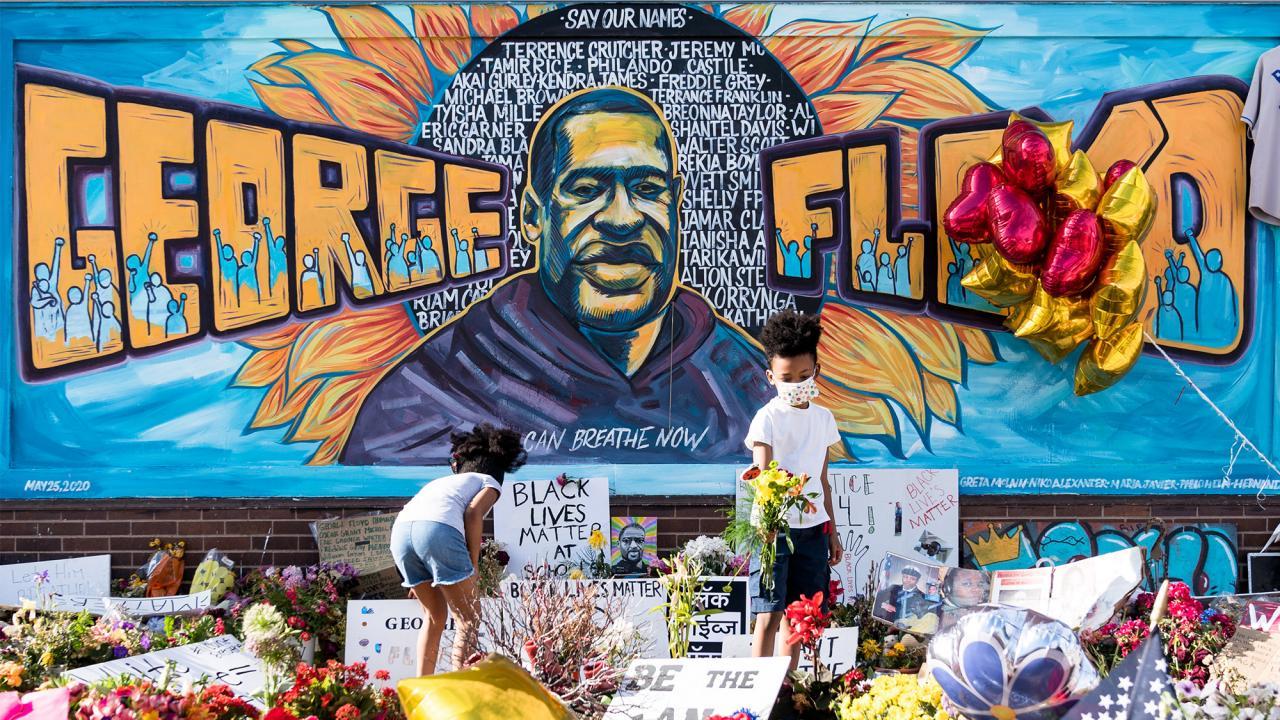
A Year of Action in Diversity, Equity and Inclusion
One year ago today, news of George Floyd’s death in police custody reverberated across the country and around the world, leading to Black Lives Matter protests and, at UC Davis, a strengthening of the university’s commitment to diversity, equity and inclusion.
“George Floyd’s tragic murder only reaffirmed the need to build an inclusive environment that recognizes and respects people of all backgrounds and experiences,” said Chancellor Gary May today (May 25), reflecting on a year of progress in diversity, equity and inclusion at UC Davis. “We were motivated and well positioned to take our DEI efforts to a new level.”
First the campus mourned with a Community Moment of Silence for George Floyd, whose death led to a police officer’s conviction for murder; Breonna Taylor and Stephon Clark and other people of color killed by police; and other victims like Ahmaud Arbery, a Black man who died in a confrontation with two white men who chased him down in an Atlanta suburb.
Chancellor May knew there was hard work ahead. In written and spoken remarks in the days after George Floyd’s death, he said: “Inclusion — like social justice — doesn’t come easily. It requires collective effort. It requires each one of us working to make a difference, whether that’s through getting involved in your community, peaceful protesting or doing what you can to change procedures that reflect bias.”
Campus departments and units took up his call, despite struggling with the pandemic at the same time, putting diversity, equity and inclusion top of mind in mission planning and training.
From allyship to action
All along the way, Renetta Garrison Tull, vice chancellor of diversity, equity and inclusion, called upon the campus community to “turn allyship into action.” The response has been overwhelming.
“There have been a number of programs that have developed over the last year, in response to George Floyd’s death, but also in recognition of some long-standing issues that still needed to be addressed,” she said. “Schools, colleges and units developed new positions, doubled down on diversity efforts and invested in new programs.”
Graduate Studies developed an Anti-Racism Initiative and held its inaugural symposium earlier this month. The Center for Educational Effectiveness in Undergraduate Education developed several “Workshops on Demand” to address issues such as “Foundations of an Anti-Racist Pedagogy” and “Beyond 101: Addressing Racism and Microaggressions in the Classroom.”
The UC Davis Office of Diversity, Equity and Inclusion added more Diversity Courses such as “Unpacking Oppression,” and faculty and staff came together to offer their own sourced resources and solutions such as the UC Davis STEM Faculty Resource Guide for Faculty Starting to Learn About Equity, Inclusion, Justice and Anti-Racism, as they taught and worked through the pandemic.
Faculty and staff diversity
To improve faculty diversity, the university provides training to all those involved in recruitment and hiring.
UC Davis has trained more than 1,300 faculty members on implicit bias and best practices for new faculty recruitment, via a faculty-led program called Strength Through Equity and Diversity, or STEAD. At UC Davis Health, Supporting Educational Excellence in Diversity, or SEED, teaches faculty and instructors how to apply cultural humility and how to identify microaggressions that can impede learning.
Further, the university requires all applicants to submit statements on how they will contribute to diversity, equity and inclusion.
“As we remember George Floyd,” said Vice Chancellor Tull, “who died so unnecessarily, we must also be purposeful in making sure that social justice is in place for all, to give the best of life to those who are here now, and to prepare the way for the generations to come.”
Media Resources
- CBS Diversity, Equity and Inclusion website
- This story was adapted from a story in Dateline
- Dave Jones, Dateline, dateline@ucdavis.edu
- Cody Kitaura, News and Media Relations specialist, kitaura@ucdavis.edu
